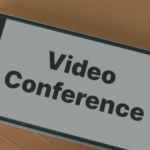Do you have a networking strategy?
Strategic : Relating to the identification of long-term or overall aims and interests and the means of achieving them.
I recently ran a workshop at the JUMP Forum in Brussels on political skills and networking.
There was a great and engaged turnout for what turned out to be a power workshop, because in 90 minutes I could only focus on giving a broad brush overview. However, at one point in the presentation, I did ask the delegates if anyone had come to the JUMP event with a networking strategy, a game plan.
There was an almost deafening silence and a complete stillness of hands.
No stones
I can relate to that, having lived at one time in something of a glass house myself, so am not going to throw stones at anyone else! I have been a delegate at any number of conferences, where I have pitched up, sat with my friends in a few seminars, briefly talked to some distant acquaintances and even perhaps been introduced to someone new.
I’ve had a glass of inferior wine, a few limp nibbles with other known associates and then headed off home until the next one.
Strategic networking score = 0.
In my own defence (and everyone else’s) these events are sometimes the only places that we see some particular faces. I am also extremely social, so it’s not that I have a problem talking to strangers, it is just more comfortable to be with people I already know. Monica Stallings calls this ” multi-plex” networking and not unsurprisingly we all prefer to network in that way, although men show a greater and marked willingness to network strategically.
So, a number of people asked me after the event what they could have done differently, other than just showing up with a business card and a smile? Both are clearly valuable tools for the professional networker, but obviously the first thing with strategic networking, is to actually have a strategy!
Think up a plan and set some goals!
5 easy networking strategies
1. Research the delegates and speakers in advance.
Is there an event email list and can you connect with people before you get there and suggest that you meet? This saves a lot of time walking around struggling with that challenging balancing act with your coffee, canapé, conference folder and briefcase, looking completely lost. It is great for people who are nervous about going into rooms where everyone seem to know each other.
It is also an opportunity to research their backgrounds, their career paths, read their blogs or check out their tweets. That one little strategy creates great ice-breaker topics for those who are more on the shy side.
It also provides a good reason to interrupt a group, to ask if they know that person, rather than simply hovering on the outskirts feeling awkward. And yet again, when you’ve been cornered by someone and desperately want to move on, you can always say quite legitimately that you have promised to meet such and such a person , thus facilitating a swift, but credible, get away.
2. Always make a point of sitting beside people you don’t know at all the sessions
See above: saves even more wandering around looking lost.
3. Set a goal of speaking to x new people
This could be during the day, or collecting a certain number of business cards. Someone gave me a great tip of wearing a jacket with one pocket for my own cards and another for newly collected cards.
Note to self – don’t mix them up!
4. Write down any pieces of information
Do this on the back of the card or dictate a voice note into your phone any information which you think might be useful for the next meeting: e.g. “ twins, ski hound, drinks like fish”.
Transfer to your Outlook or other contacts data base.
5. Follow up
With an email, or by connecting on a professional platform (LinkedIn, Twitter). By doing this, you connect not only with the card giver but their entire network.
So how does your conference networking strategy score on a scale of 1 to 10 ?
If you need help in your organisation encouraging employees to become confident in this vital career and business skill -get in touch NOW!






Thanks Dorothy – great ideas! I think networking is much like other things in life – you get out what you put in. Yes, you do need to do your home work and prepare if you want to get something truly useful back from the experience
With best wishes
Wendy
Hi Wendy – I agree – it’s all about engagement!
Thanks for engaging!
This is great! Next month I’m conducting a Lunch & Learn on Networking and the Benefit Speech (formerly known as the elevator pitch.) It seems as if every few days, one or another of my Twitter friends posts an article on that subject. I’m receiving great input from lots of highly experienced people. You have thoughts here I hadn’t seen before. Thanks so much!
One caveat about writing on the back of business cards. In western culture we think nothing of it. Other cultures, however, may not see it that way. My son-in-law was in a meeting with a couple of top executives from a Japanese company. He noted some details on the back of their business cards during the meeting. The two Japanese men were so insulted, they stood up and walked out! He had defaced their card, an act of extreme rudeness according to their culture. So if you’re going to write on the card of someone from another culture than your own, wait until they are out of sight!
Hi Heather – thanks for your comment. I’m not fan of elevator pitches but prefer elevator soundbites ( named by Twitter buddy Ellen Brown! ) because 4 x 15 second pieces or 6x 10 second pieces can be just as, if not more effective than 60 seconds of non stop talking about self!
Yes clearly discretion is required when writing on the back of cards whether in Japan or elsewhere -especially if saying ” drinks like fish” . That’s just an aide memoire to be done later at home!
Dorothy,
Great post…very helpful. I do want to extend on Heather’s caveat about the difference in cultures. Despite the advances towards a more social networking approach in India, I still see a different kind of behaviour in the networking events in India. People seem to prefer to wait to get introduced or seem to be unwilling to be disturbed by strangers.
But this will change soon I guess.
Sarvani
Hi Sarvani – thanks for your comment. Networking has to be flexible and empathetic to be successful so I’m not suggesting being insensitive to situations. If you can arrange a meeting by mutual consent beforehand it is quite a nice strategy – especially for introverts. But obviously we should all take into account different cultural norms and expectations.
Hi Dorothy – I was at your workshop last week and it was really motivating. It gave me a whole new perspective on networking and lots of strategies to overcome my nerves and slight feelings of discomfort. I set myself goals for this week as you suggested and have implemented them! The next conference I go to I will approach differently!
Thanks Sophie – good luck!
Hi Mariska, James, Alex- happy networking and look forward to hearing if having a strategy makes a difference!
Hello Dorothy – great suggestions – some of which I hadn’t even thought of – but will definitely try now!
Dorothy – good tips. I find these functions hugely dull but will definitely try some advance research and see if that makes a difference!
Hi Dorothy – good ideas. I’m going to try a few!
Dorothy,
Great post on an important topic.
I really like the idea of accessing a list of attendees prior to the event and reading up on their blogs, Twitter feeds, LinkedIn profiles, etc., and as you say, even prepare via email exchange to meet up with certain folks.
For the, I believe, the key is small goals: 1 or 2 new people to meet and really get to know via a deeper slice exchange vs. the meet and greet sort of movement I see some people engage in (it just feels shallow and a bit disingenuous). I think that’s why your suggestion to research a few folks ahead of time and really engage about their career paths, blog topics and/or even a bit about their personal passions during a meeting deepens the conversation.
Finally, I’ve found that, if there’s a way to offer my volunteer support at the function; e.g., introduce speakers, take notes during the event for a follow-up newsletter or blog post, be a representative ‘tweeter’ at the event or, well, the possibilities can be endless, that my focus is more centered, and I feel less like a networker, and more like a contributor.
Thanks again for creating opportunities for pithy exchanges via your thoughtful blog!
Jacqui
Thanks Jacqui for your comment. I think different people will have different networking needs and the important thing is that they know and understand what those needs are. They will vary according to their personalities and business requirements. For those that are nervous or unccomfortable – baby steps I agree are always the best! Small achieveable goals!
Hi Dorothy – Your presentation was really great at JUMP and motivated me to increase my visibility so that I will really exist! Surprising what a difference the smallest strategy makes! Merci!
Thanks Anne – glad you found it useful! Happy networking!
Great post Dorothy! I find that women often think negatively about networking and are therefore less involved in it. When you enter a room with a negative or hesitant feeling, you will not get much out if it. So first of all reframe your thinking and consider it as an opportunity to meet new people, share ideas, get inspired with new ideas etc. Women are great at building relationships, they have the power to be excellent networkers.
And yes, preparation is important. Although I also leave room for intuition, and let myself be ‘drawn’ to one person or another, this often gives surprising and great results.
Finally I recommend to see networking as an exchange of attention, not of business cards. The value is in the attention you give and receive. So don’t just set out to distribute as many cards as you can and ‘sell’ your stuff. Listening is a strong tool. Make sure you have something to give: attention, a tip, an idea, a recommentadion on something to read, the contacts of another person etc… It’s about sharing: give and you will receive 🙂
Thanks Michele – I agree the key networking points are flexibility, empathy and sincerity. Women are great relationship builders and just have to convert what they are already good at for professional purposes. It am convinced that it’s just about learning new small strategies!
Hi Dorothy – super tips that REALLY work! I always hate going into full rooms where everyone is already chatting. But on your advice I contacted two other delegate beforehand and sent an SMS as I arrived! I had my own welcome committee! That one tip will change my networking life! It was the simplest solution!
Bonjour Dorothy – good advice which I have already used. Saves a lot of time and everyone was really happy to hear from me – at least that’s what they said!
Thanks Benny and Natasha – appreciate your feedback!
A great little piece of common sense.
Thanks – glad you liked it!
Lucky you to have been at a JUMP event! I’ve been working with Isabella lately and have been impressed with what I’ve seen of her organization. I also like your thoughts about how to get the most out of a conference. These are skills that those of us in the university sector need to do a better job of teaching to our PhD students, postdocs and young faculty. Nice tips … I write some on issues that people who attend JUMP might enjoy, e.g. gender balance in higher ed, e.g. Why hire (wo)men?: http://t.co/0s8bdbF and A slow thaw for women: http://t.co/pcy8kcW
carry on!
curt
Hi Curt – yes it was a great event – I contributed a power workshop on networking. Will check out your recommended links.
Pingback: How to create a career strategy when ALL jobs are temporary. | Dorothy Dalton
Pingback: 5 reasons job seekers should volunteer | Dorothy Dalton
Pingback: 5 reasons job seekers should volunteer | PTPI Belgium
Pingback: Summary Sunday: Jump on Twitter for New Grads and Job Seekers – Career Sherpa